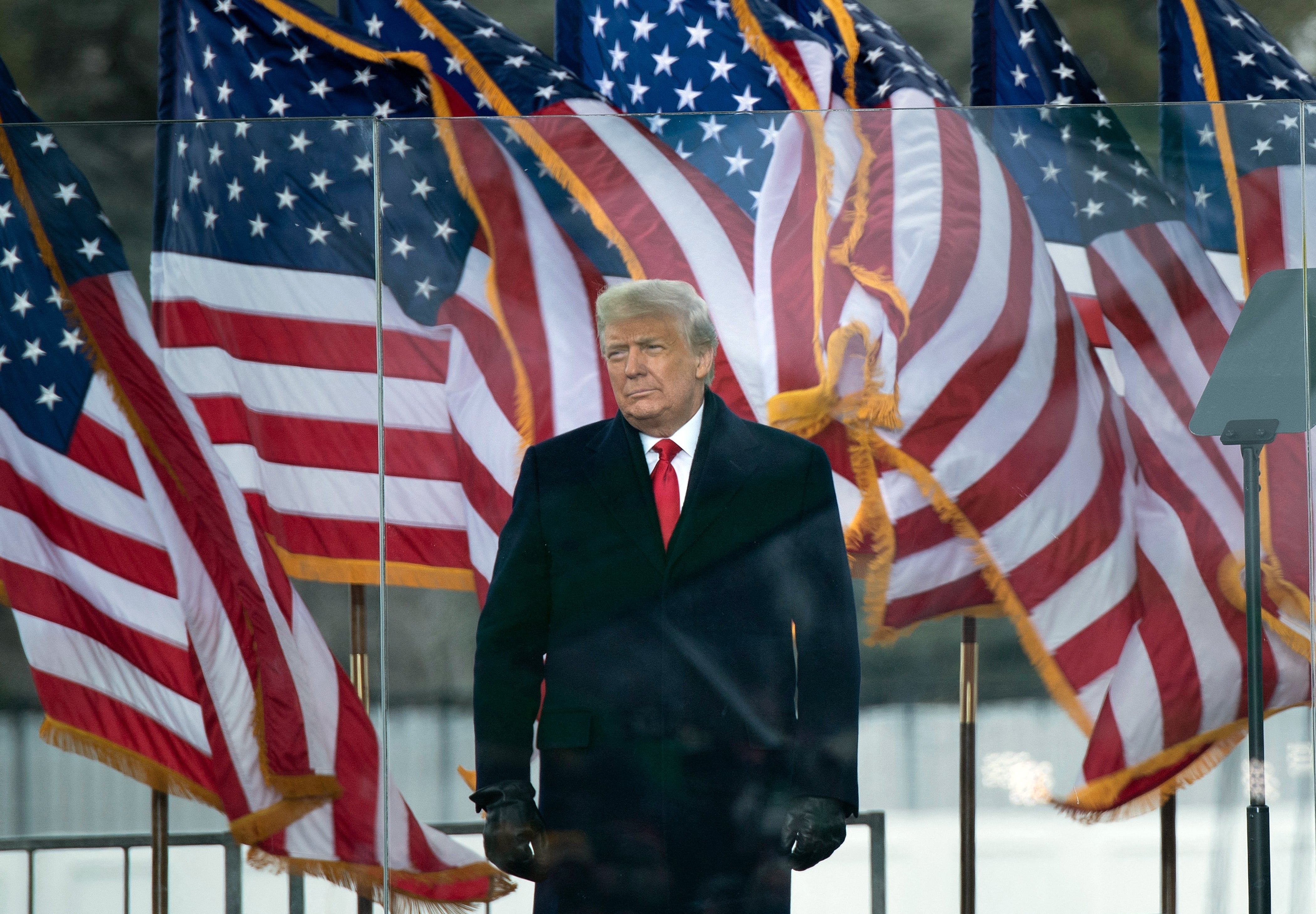Trump asks Supreme Court for broad immunity from criminal charges in election interference case
So far, two federal courts have denied the former president’s immunity defense
Your support helps us to tell the story
From reproductive rights to climate change to Big Tech, The Independent is on the ground when the story is developing. Whether it's investigating the financials of Elon Musk's pro-Trump PAC or producing our latest documentary, 'The A Word', which shines a light on the American women fighting for reproductive rights, we know how important it is to parse out the facts from the messaging.
At such a critical moment in US history, we need reporters on the ground. Your donation allows us to keep sending journalists to speak to both sides of the story.
The Independent is trusted by Americans across the entire political spectrum. And unlike many other quality news outlets, we choose not to lock Americans out of our reporting and analysis with paywalls. We believe quality journalism should be available to everyone, paid for by those who can afford it.
Your support makes all the difference.Former president Donald Trump asked the Supreme Court to grant him total immunity from criminal charges he’s facing in his federal election interference case, saying it was integral to the future of the US presidency to do so.
In a brief submitted to the court on Tuesday, Mr Trump’s legal team outlined the former president’s argument and reasoning in asking for immunity, claiming the president requires protection from criminal charges in order to carry out the powers and responsibilities of the job.
“A denial of criminal immunity would incapacitate every future President with de facto blackmail and extortion while in office, and condemn him to years of post-office trauma at the hands of his political opponents,” Mr Trump’s legal team wrote.
They claimed the president has inherent immunity thanks to the Executive Vesting Clause, which awards the president specific powers, and the separation of powers laid out in the US Consitution. They also cited the ruling in the 1982 Supreme Court case Nixon v Fitzgerald which declared presidents immune from civil lawsuits for conduct within the “outer perimeter” of their authority.
It is the same argument that Mr Trump’s team made to an appeals court in Washington DC earlier this year, which the court later rejected.
Now Mr Trump is taking his argument to the Supreme Court, which will have to decide whether a former president can enjoy immunity from criminal prosecution for "conduct alleged to involve official acts during his tenure in office” and to what extent.
The court will hear oral arguments on 25 April.

The former president’s immunity defence arose from the criminal indictment brought by Special Counsel Jack Smith last year. Mr Smith is accusing Mr Trump of trying to overturn the 2020 presidential election results in his favour by knowingly making false claims of election fraud and pressuring state officials to approve fraudulent electors.
Mr Trump believes he is immune from criminal prosecution because he says he was acting in his “official” capacity as president.
In their brief, Mr Trump’s legal team cited the lack of prosecutions against former presidents for controversial actions, including Bill Clinton’s pardon of fugitive Marc Rich, George W Bush’s alleged false statements about weapons of mass destruction in Iraq and Barack Obama’s use of drones to take out membes of Al Qaeda with US citizenship.
They claimed this was evidence that it was never intended for any former president to face criminal charges for any crime committed in office, despite the examples have little to do with the charges Mr Trump faces.

Mr Smith’s legal team previously disputed Mr Trump’s claim, arguing that Mr Trump is not immune from prosecution because his actions were not part of presidential responsibilities and thus not an “official” act. Mr Smith has yet to submit his brief to the Supreme Court; he has until 8 April.
Mr Trump’s team suggested that should the Supreme Court reject his immunity defence they could return to a lower court for further factfinding – like determining if Mr Trump’s actions were considered “official acts”. This would further delay the case from going to trial which Mr Smith has pushed to take place before the November presidential election.
So far, a district court and federal appeals court have sided with Mr Smith.
Andrew Feinberg contributed to this report

Join our commenting forum
Join thought-provoking conversations, follow other Independent readers and see their replies
Comments